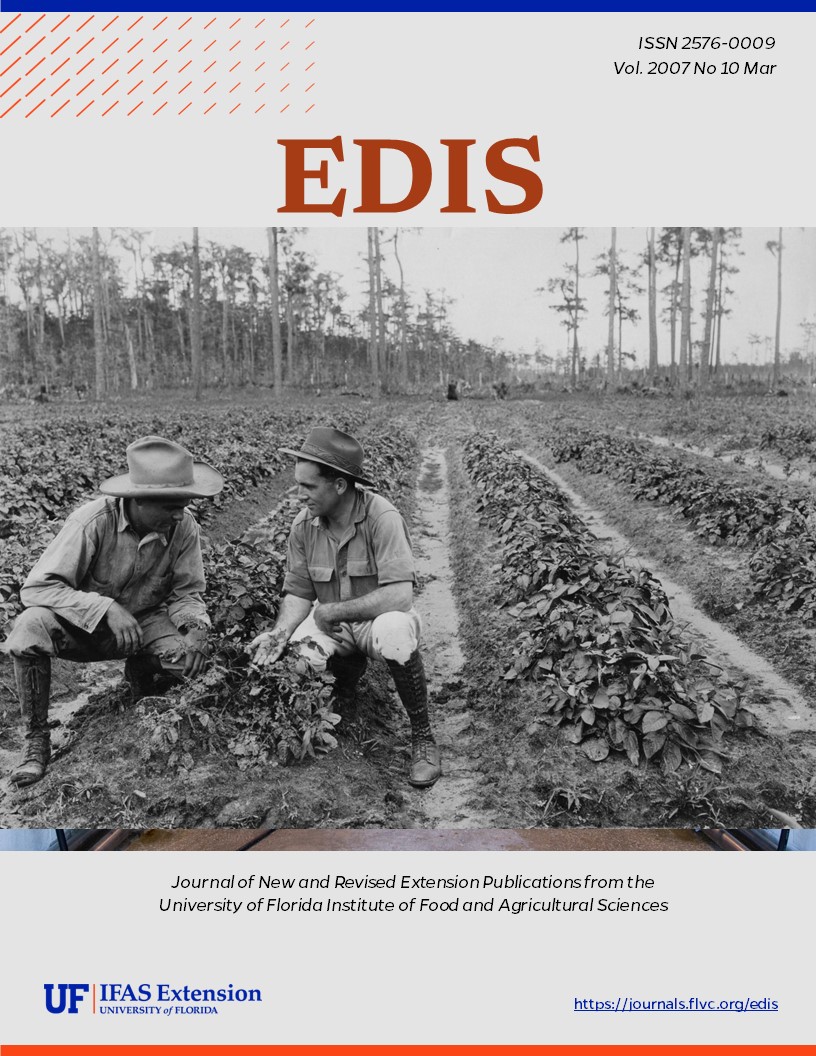Abstract
This document is about grass tetany, sometimes called grass staggers or hypomagnesemia, that can be a serious problem in Florida with cattle grazing small grain or ryegrass pastures. The problem is usually confined to lactating cows. It is always associated with an imbalance in the mineral components of blood serum, especially reduced magnesium levels. In Florida, grass tetany is more severe when cattle are grazing young forage, particularly the first flush of growth during December and January. Once the forage becomes more mature, the likelihood of problems is reduced. Grass tetany is apt to appear under conditions of nutritional stress. Placing cattle on winter pasture directly after being on frosted or other low quality pasture may cause such a nutritional stress. First published in April 1997.

This work is licensed under a Creative Commons Attribution-NonCommercial-NoDerivatives 4.0 International License.
Copyright (c) 2007 UF/IFAS

